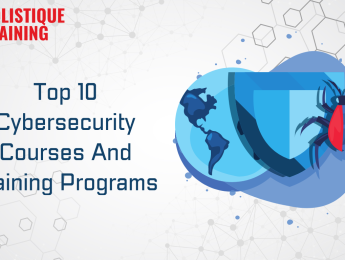- Table of Contents
- Introduction
- What is DevOps?
- Difference between DevOps and Agile
- Why is DevOps Important?
- 1. Accelerated Time-to-Market
- 2. Improved Collaboration and Communication
- 3. Increased Efficiency Through Automation
- 4. Enhanced Quality and Reliability
- 5. Agility and Flexibility
- 6. Cost Efficiency
- 7. Customer Satisfaction and Business Growth
- What are the Most Used DevOps Tools?
- 1. Jenkins
- 2. Docker
- 3. Kubernetes
- 4. Git
- 5. Ansible
- 6. Terraform
- 7. Prometheus
- 8. Nagios
- 9. ELK Stack (Elasticsearch, Logstash, Kibana)
- 8 In-Demand DevOps Certifications
- 1. AWS Certified DevOps Engineer – Professional
- 2. Microsoft Certified: DevOps Engineer Expert
- 3. Google Professional DevOps Engineer
- 4. Docker Certified Associate (DCA)
- 5. Certified Kubernetes Administrator (CKA)
- 6. Puppet Certified Professional
- 7. Red Hat Certified Specialist in Ansible Automation
- 8. HashiCorp Certified: Terraform Associate
- Benefits of Getting DevOps Certified
- 1. Enhanced Career Opportunities
- 2. Higher Earning Potential
- 3. Validation of Skills and Expertise
- 4. Improved Professional Network
- 5. Staying Current with Industry Trends
- 6. Increased Efficiency and Productivity
- 7. Recognition and Achievement
- 8. Broader Skill Set
- Steps to Excel in DevOps
- Master the Fundamentals:
- Develop Strong Collaboration Skills:
- Embrace Automation:
- Stay Updated with Industry Trends:
- Pursue Certifications:
- Engage in Real-World Projects:
- Contribute to Open Source Projects:
- Conclusion
Introduction
The tech landscape is ever-evolving, with methodologies and practices continually adapting to meet the demands of a fast-paced digital world. One such transformative approach is DevOps. This blog post delves into the essence of DevOps, exploring its fundamentals, distinctions from Agile, significance in the modern IT environment, and the tools and certifications you need to thrive. Whether you're a seasoned IT professional or a newcomer looking to enhance your skills, understanding DevOps is crucial for navigating today's tech-driven industries.
What is DevOps?
DevOps, a portmanteau of "development" and "operations," is a set of practices, tools, and cultural philosophies that automate and integrate the processes between software development and IT teams. This methodology aims to shorten the systems development lifecycle while delivering features, fixes, and updates frequently in close alignment with business objectives. The core of DevOps is built on fostering a culture of collaboration between teams that traditionally worked in silos, thereby enhancing efficiency and productivity.
At its heart, DevOps is about breaking down the barriers between development and operations, creating a unified team that works cohesively throughout the entire software lifecycle. This includes everything from initial development and testing to deployment and operations. By integrating these traditionally separate functions, DevOps enables organizations to deliver applications and services at high velocity, evolving and improving products at a faster pace than organizations using traditional software development and infrastructure management processes.
Difference between DevOps and Agile
While both DevOps and Agile aim to improve the speed and quality of software delivery, they do so in different ways and focus on different aspects of the development process. Agile is a set of principles for software development under which requirements and solutions evolve through collaborative efforts of cross-functional teams. It emphasizes flexible responses to change, iterative progress, and customer collaboration.
DevOps, on the other hand, extends Agile principles beyond development to include operations. While Agile focuses on optimizing the development process, DevOps encompasses the entire software lifecycle, including development, testing, deployment, and operations. The main distinction is that Agile is more about processes and methodologies within the development phase, whereas DevOps is about end-to-end automation and integration of processes across the development and operations spectrum.
Aspect | DevOps | Agile |
Focus | Emphasizes collaboration between development and operations teams to automate and streamline software delivery and infrastructure changes. | Concentrates on iterative development and customer feedback to improve software quality and responsiveness. |
Scope | Encompasses the entire software development lifecycle, including development, testing, deployment, and operations. | Primarily focuses on the development phase, emphasizing rapid iterations and adaptability. |
Team Structure | Encourages cross-functional teams that include both developers and operations personnel to enhance collaboration. | Typically involves small, self-organizing teams that focus on development and product management. |
Tools and Practices | Utilizes tools for continuous integration, delivery, and deployment, such as Jenkins, Docker, and Kubernetes. | Employs practices like Scrum and Kanban to manage work and ensure iterative progress. |
Goal | Aims to deliver software quickly and reliably by automating processes and fostering a collaborative culture. | Seeks to deliver high-quality software through iterative improvements and customer feedback. |
Why is DevOps Important?
The significance of DevOps in the modern IT landscape cannot be overstated. As organizations strive to keep pace with rapid technological advancements and ever-changing market demands, DevOps emerges as a crucial enabler of agility and innovation. Here are several reasons why DevOps is so important:
1. Accelerated Time-to-Market
In today's competitive environment, the ability to deliver new features and updates quickly is vital. DevOps practices facilitate continuous integration and continuous delivery (CI/CD), allowing teams to automate and streamline the software release process. This results in faster deployment cycles and a shorter time-to-market, enabling businesses to respond swiftly to customer needs and market shifts. By breaking down silos between development and operations, DevOps ensures that teams work collaboratively towards common goals, reducing delays and increasing efficiency.
2. Improved Collaboration and Communication
DevOps fosters a culture of collaboration and shared responsibility among development, operations, and other stakeholders. By encouraging open communication and transparency, DevOps breaks down the traditional barriers that often exist between teams. This collaborative environment not only enhances teamwork but also reduces misunderstandings and conflicts, leading to more cohesive and productive work processes. When teams work together effectively, they can address issues more quickly and make informed decisions that align with business objectives.
3. Increased Efficiency Through Automation
One of the core tenets of DevOps is automation. By automating repetitive tasks such as testing, deployment, and infrastructure management, DevOps frees up valuable time for teams to focus on more strategic activities. Automation reduces the risk of human error, ensures consistency across environments, and accelerates the delivery of high-quality software. This efficiency is particularly important in large-scale environments where manual processes can be time-consuming and error-prone.
4. Enhanced Quality and Reliability
DevOps practices emphasize continuous testing and monitoring, which leads to higher quality software and more reliable systems. Automated testing ensures that code changes are thoroughly vetted before they reach production, reducing the likelihood of defects and system failures. Continuous monitoring provides real-time insights into system performance and health, enabling teams to proactively identify and address issues before they impact end-users. This focus on quality and reliability helps maintain customer satisfaction and trust.
5. Agility and Flexibility
In a rapidly changing market, the ability to adapt quickly is crucial for business success. DevOps enables organizations to be more agile by promoting iterative development and continuous feedback loops. This flexibility allows teams to experiment, innovate, and pivot as needed, ensuring that products and services remain relevant and competitive. By embracing a culture of continuous improvement, DevOps empowers organizations to evolve alongside technological advancements and customer expectations.
6. Cost Efficiency
While the initial investment in DevOps tools and practices may seem significant, the long-term cost savings are substantial. By reducing manual efforts, minimizing downtime, and improving resource utilization, DevOps helps organizations optimize their operations and reduce costs. Additionally, the ability to deliver high-quality software quickly can lead to increased revenue and market share, further enhancing the return on investment.
7. Customer Satisfaction and Business Growth
Ultimately, the goal of DevOps is to deliver value to customers. By enabling faster delivery of features and improvements, DevOps helps organizations meet customer expectations and enhance user experiences. Satisfied customers are more likely to remain loyal and advocate for the brand, driving business growth and success. In an era where customer experience is a key differentiator, DevOps provides the tools and practices needed to stay ahead of the competition.
In summary, DevOps is important because it transforms the way organizations develop, deliver, and manage software. By fostering collaboration, automating processes, and enhancing quality, DevOps enables businesses to be more agile, efficient, and customer-centric. As the demand for rapid innovation continues to rise, the importance of DevOps will only grow, making it an essential component of any successful IT strategy.
What are the Most Used DevOps Tools?
The DevOps ecosystem is rich with tools that facilitate various aspects of the software development and operations lifecycle. These tools help automate processes, improve collaboration, and ensure efficient delivery of high-quality software. Here’s a closer look at some of the most widely used DevOps tools and their roles in the DevOps pipeline:
1. Jenkins
Jenkins is an open-source automation server that is widely used for continuous integration and continuous delivery (CI/CD). It supports building, deploying, and automating software development projects. Jenkins is highly extensible, with hundreds of plugins available to integrate with almost any tool in the DevOps ecosystem. It automates tasks such as building code, running tests, and deploying applications, which helps in maintaining the consistency and reliability of the software delivery process. Jenkins’ ability to orchestrate a complete CI/CD pipeline makes it a cornerstone in many DevOps toolchains.
2. Docker
Docker revolutionized the way software is developed and deployed by introducing containerization. Containers encapsulate an application and its dependencies into a single package that can run consistently across different environments. This eliminates the "it works on my machine" problem, ensuring that applications behave the same way in development, testing, and production. Docker's lightweight containers are faster to deploy than traditional virtual machines, which accelerates development cycles and enhances scalability.
3. Kubernetes
Kubernetes is an open-source platform designed to automate deploying, scaling, and managing containerized applications. As applications grow to span multiple containers deployed across multiple servers, operating them becomes more complex. Kubernetes provides a robust framework to run distributed systems resiliently. It handles the scheduling of containers onto a cluster and manages the workloads to ensure they run as intended. Kubernetes is especially powerful for managing microservices architectures, providing self-healing capabilities, load balancing, and automated rollouts and rollbacks.
4. Git
Git is a distributed version control system that allows developers to track changes in source code during software development. It facilitates collaboration among developers by enabling them to work on code simultaneously without conflicts. Git’s branching model supports multiple workflows, making it easy to experiment with new features or fix bugs without affecting the main codebase. Git is foundational to many DevOps practices, as it supports continuous integration and deployment by maintaining a central repository for code changes.
5. Ansible
Ansible is an open-source automation tool used for configuration management, application deployment, and task automation. It uses a simple, declarative language (YAML) to describe automation jobs, making it accessible to both developers and operations teams. Ansible is agentless, which means it doesn’t require any software to be installed on the nodes it manages, reducing overhead and complexity. It is often used to automate infrastructure provisioning and configuration, ensuring environments are consistent and repeatable.
6. Terraform
Terraform is an infrastructure as code (IaC) tool that allows you to build, change, and version infrastructure safely and efficiently. It enables you to define your infrastructure in configuration files that describe the desired state of your cloud or on-premises resources. Terraform then automates the provisioning and management of these resources, ensuring they are consistently deployed according to the specifications. This approach not only improves efficiency but also enhances collaboration by allowing infrastructure to be treated as code, versioned, and reviewed like any other source code.
7. Prometheus
Prometheus is an open-source monitoring and alerting toolkit used to monitor systems and services. It collects metrics from configured targets at given intervals, evaluates rule expressions, displays the results, and triggers alerts if specified conditions are observed. Prometheus is particularly popular in the cloud-native ecosystem, often used alongside Kubernetes to monitor containerized applications. Its powerful query language, PromQL, allows for flexible and detailed data analysis, making it an essential tool for maintaining system performance and reliability.
8. Nagios
Nagios is one of the oldest and most widely used open-source monitoring tools. It provides monitoring and alerting for servers, switches, applications, and services. Nagios can monitor the availability of resources, track performance metrics, and alert administrators when thresholds are breached. Its extensibility through plugins makes it adaptable to a wide range of monitoring needs, from simple checks to complex scenarios.
9. ELK Stack (Elasticsearch, Logstash, Kibana)
The ELK Stack is a powerful set of tools for managing and analyzing log data. Elasticsearch is a search and analytics engine, Logstash is a server-side data processing pipeline, and Kibana is a visualization tool. Together, they allow organizations to collect, store, search, and visualize log data from various sources in real-time. This capability is crucial for troubleshooting, performance monitoring, and gaining insights into application and infrastructure operations.
These tools, among others, form the backbone of a successful DevOps strategy. By integrating and automating processes across the development and operations lifecycle, they enable teams to deliver software more efficiently, reliably, and at scale. As the DevOps landscape continues to evolve, staying abreast of the latest tools and technologies will be key to maintaining a competitive edge and driving innovation.
8 In-Demand DevOps Certifications
As the demand for DevOps professionals continues to rise, obtaining relevant certifications has become a valuable way to validate skills, enhance career prospects, and stay competitive in the tech industry. Here’s a detailed look at some of the most sought-after DevOps certifications, each offering unique benefits and focusing on different aspects of the DevOps lifecycle:
1. AWS Certified DevOps Engineer – Professional
The AWS Certified DevOps Engineer – Professional certification is designed for individuals who perform a DevOps engineer role with two or more years of experience provisioning, operating, and managing AWS environments. This certification validates expertise in implementing and managing continuous delivery systems and methodologies on AWS, automating security controls, governance processes, and compliance validation. It also covers the skills needed to implement and automate security controls, governance processes, and compliance validation. This certification is ideal for professionals looking to demonstrate their ability to manage and operate AWS environments efficiently.
2. Microsoft Certified: DevOps Engineer Expert
The Microsoft Certified: DevOps Engineer Expert certification is targeted at professionals who are skilled in combining people, processes, and technologies to continuously deliver valuable products and services that meet end-user needs and business objectives. This certification requires proficiency in working with people, processes, and technologies to deliver business value. Candidates typically have experience with Azure administration and development and must earn either the Azure Administrator Associate or Azure Developer Associate certification as a prerequisite. This certification is particularly valuable for those working in environments that utilize Microsoft Azure services.
3. Google Professional DevOps Engineer
The Google Professional DevOps Engineer certification is designed for individuals responsible for efficient development operations that can balance service reliability and delivery speed. This certification validates the ability to build software delivery pipelines, deploy and monitor services, and manage incidents using Google Cloud Platform. It emphasizes skills in using Google Cloud tools and services to automate infrastructure and application deployment, enabling professionals to leverage the full potential of cloud-native architectures.
4. Docker Certified Associate (DCA)
The Docker Certified Associate (DCA) certification is aimed at IT professionals who want to validate their skills in using Docker and containerization technologies. This certification covers the fundamental concepts and skills necessary to deploy and manage Docker containers, including container orchestration, security, networking, and storage. It is an excellent choice for developers and system administrators looking to demonstrate their proficiency in containerization, which is a critical component of modern DevOps practices.
5. Certified Kubernetes Administrator (CKA)
The Certified Kubernetes Administrator (CKA) certification is designed for Kubernetes administrators, cloud administrators, and other IT professionals who manage Kubernetes instances. This certification focuses on the skills required to be a Kubernetes administrator, including installation, configuration, application lifecycle management, networking, and security. As Kubernetes has become the de facto standard for container orchestration, this certification is highly valued by employers seeking professionals capable of managing complex, scalable applications in production environments.
6. Puppet Certified Professional
The Puppet Certified Professional certification is for individuals who want to demonstrate their expertise in using Puppet, a popular configuration management tool. This certification validates skills in managing system configurations, automating infrastructure deployments, and orchestrating complex workflows using Puppet. It is particularly beneficial for system administrators and DevOps engineers who work in environments where Puppet is used to automate and manage infrastructure.
7. Red Hat Certified Specialist in Ansible Automation
The Red Hat Certified Specialist in Ansible Automation certification is targeted at IT professionals who use Ansible to automate system administration tasks. This certification demonstrates the ability to use Ansible for automating tasks, managing systems, and deploying applications. It is ideal for system administrators, developers, and DevOps engineers who want to validate their skills in using Ansible for automation and configuration management.
8. HashiCorp Certified: Terraform Associate
The HashiCorp Certified: Terraform Associate certification is designed for cloud engineers specializing in operations and infrastructure management. This certification validates the ability to use Terraform to provision and manage infrastructure across multiple cloud providers. It covers the fundamental skills needed to write, plan, and apply Terraform configurations, making it a valuable credential for professionals working in multi-cloud environments.
Benefits of Getting DevOps Certified
Obtaining a DevOps certification offers numerous advantages that can significantly impact your career and professional growth. Here’s an in-depth look at the benefits of becoming DevOps certified:
1. Enhanced Career Opportunities
DevOps certifications open up a wide array of career opportunities in the rapidly growing field of software development and IT operations. As more organizations adopt DevOps practices to improve their software delivery processes, the demand for skilled DevOps professionals continues to rise. Certified individuals are often preferred by employers because certifications demonstrate a standardized level of knowledge and expertise in DevOps methodologies and tools. This preference can lead to faster job placements and promotions, providing a competitive edge in the job market.
2. Higher Earning Potential
Certified DevOps professionals typically command higher salaries compared to their non-certified counterparts. The specialized skills and knowledge validated by certifications are highly valued in the industry, leading to lucrative job offers and compensation packages. As organizations strive to optimize their software delivery pipelines and infrastructure management, they are willing to invest in professionals who can drive these improvements effectively. This demand translates into better financial incentives for certified individuals. In the United States, DevOps engineers earn an average salary of$142,000, with compensation typically ranging between $118,000 and $175,000. The demand for DevOps professionals is strong and is anticipated to increase further, driven by the growing adoption of AIOps (artificial intelligence operations) and MLOps (machine learning operations).
3. Validation of Skills and Expertise
DevOps certifications serve as a formal recognition of your skills and expertise in the field. They validate your ability to implement DevOps practices, use relevant tools, and contribute to the efficiency and success of software development and operations processes. This validation is crucial for building credibility with employers, colleagues, and clients, as it provides assurance of your capabilities and commitment to maintaining industry standards.
4. Improved Professional Network
Many certification programs offer access to a community of like-minded professionals, providing opportunities for collaboration, knowledge sharing, and networking. Engaging with this community can enhance your professional network, allowing you to connect with industry leaders, peers, and potential mentors. These connections can lead to career advancement opportunities, collaborations on projects, and valuable insights into industry trends and best practices.
5. Staying Current with Industry Trends
The DevOps landscape is constantly evolving, with new tools, practices, and methodologies emerging regularly. Pursuing certifications helps you stay up-to-date with the latest developments in the field, ensuring that your skills remain relevant and competitive. Certification programs often include training materials and resources that cover the most current technologies and approaches, enabling you to adapt to changes in the industry and maintain your expertise.
6. Increased Efficiency and Productivity
Certified professionals are equipped with the knowledge and skills to implement DevOps practices effectively, leading to increased efficiency and productivity in their work. By understanding how to automate processes, manage configurations, and optimize workflows, certified individuals can contribute to faster software delivery cycles, reduced errors, and improved collaboration within teams. This efficiency not only benefits the organization but also enhances personal job satisfaction and career fulfillment.
7. Recognition and Achievement
Achieving a DevOps certification is a significant accomplishment that reflects your dedication and hard work. It provides a sense of achievement and recognition that can boost your confidence and motivation. This recognition can be beneficial for career progression, as it demonstrates your commitment to continuous learning and professional development.
8. Broader Skill Set
DevOps certifications often cover a wide range of topics, from technical skills related to specific tools and technologies to broader concepts such as collaboration, communication, and process optimization. This comprehensive approach helps you develop a well-rounded skill set that is applicable to various roles and responsibilities within the DevOps domain. By expanding your expertise, you become more versatile and adaptable, positioning yourself for diverse career paths and opportunities.
In summary, obtaining a DevOps certification is a strategic investment in your career that offers numerous benefits, from enhanced job prospects and higher earning potential to improved skills and professional recognition. As the demand for DevOps professionals continues to grow, certifications provide a valuable way to differentiate yourself in the competitive tech industry and achieve long-term career success.
Steps to Excel in DevOps
Excelling in DevOps requires a combination of technical skills, collaboration, and continuous learning. Here are some steps to help you succeed:
Master the Fundamentals:
Gain a solid understanding of key DevOps concepts, tools, and practices. Familiarize yourself with version control systems, continuous integration/continuous deployment (CI/CD) pipelines, and containerization technologies.
Develop Strong Collaboration Skills:
DevOps thrives on collaboration. Work on improving your communication and teamwork abilities to effectively coordinate with cross-functional teams.
Embrace Automation:
Learn to automate repetitive tasks to increase efficiency and reduce the risk of human error. Familiarize yourself with automation tools like Ansible, Puppet, and Chef.
Stay Updated with Industry Trends:
The DevOps landscape is constantly evolving. Stay informed about the latest tools, practices, and methodologies by attending conferences, webinars, and online courses.
Pursue Certifications:
As mentioned earlier, certifications validate your skills and enhance your career prospects. Choose certifications that align with your career goals and interests.
Engage in Real-World Projects:
Apply your knowledge by working on real-world projects. Practical experience is invaluable in understanding the challenges and intricacies of DevOps.
Contribute to Open Source Projects:
Participating in open-source projects allows you to collaborate with experienced professionals, gain hands-on experience, and contribute to the community.
Table: Key Performance Indicators (KPIs) of a DevOps Engineer
KPI | Description |
Deployment Frequency | Measures how often new code is deployed to production, indicating agility and responsiveness. |
Change Failure Rate | Tracks the percentage of deployments that result in a failure, highlighting reliability and stability. |
Mean Time to Recovery (MTTR) | Assesses the average time taken to recover from a failure, reflecting the efficiency of incident response. |
Lead Time for Changes | Evaluates the time taken from code commit to deployment, showing the speed of delivery. |
Automation Rate | Indicates the extent to which processes are automated, impacting efficiency and error reduction. |
By following these steps, you can build a strong foundation in DevOps and position yourself for success in this dynamic field.
Conclusion
DevOps is more than just a methodology; it's a cultural shift that transforms how organizations develop, deliver, and maintain software. By fostering collaboration, automation, and continuous improvement, DevOps enables businesses to respond rapidly to changing market demands and customer needs. Understanding the principles and practices of DevOps, along with obtaining relevant certifications, can significantly enhance your career prospects and open doors to exciting opportunities in the tech industry.
As you embark on your DevOps journey, remember that continuous learning and adaptation are key. Stay curious, embrace new challenges, and leverage the power of collaboration to excel in this ever-evolving field. Whether you're looking to streamline processes, improve efficiency, or drive innovation, DevOps offers the tools and strategies to achieve your goals and thrive in the digital age.

























